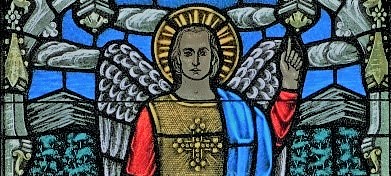St Peter has a warning for you today: “God resisteth the proud… be sober, be vigilant because the devil is on the lookout…humble yourselves therefore….” St Bernard, asked to list the four cardinal virtues, answered: “humility, humility, humility and humility” . And O. Hobart Mowrer once said, “You alone can do it, but you cannot do it alone”.
In an era that fawns on the rich and famous and adopts as its principle, “Me first”, humility is a concept scorned or, worse, neglected. The modern interpretations of humility as earthiness, groveling or timidity miss the essence of this ancient, classic virtue. For humility signifies, simply, the acceptance of being human, the acceptance of one’s human being. It is the embrace of two opposite natures, both saint and sinner, beast and angel, that constitutes our very be-ing as human. Beginning with the acceptance that being human is good enough, humility involves learning how to live with and take joy in that reality. St Augustine observed that “it was pride that made angels into devils; it is humility that makes men as angels.” Humility is a spiritual experience.
This spirituality of humility is concerned with what in the human being is irrevocable and immutable: the essential imperfection, the basis and inherent flaws of being human. They are part of our truth as being human. We are not everything but neither are we nothing. Humility is discovered in that space between paradox’s extremes, for there we confront our helplessness and powerlessness, our woundedness. In seeking to understand our limitations, we seek not only an easing of our pain but an understanding of what it means to hurt and what it means to be healed. Humility begins with the acceptance that our fractured being, our imperfection, simply is. This kind of “spirituality of humility” speaks to us all who seek meaning in the absurd, peace in the chaos, light within darkness, joy within suffering, without denying the reality and even the necessity of absurdity, chaos, darkness and suffering. This is not a spirituality for the saints, but for people like us who suffer from what William James called “torn-to-pieces-hood”. We have all known that experience, for to be human is to feel at times divided, fractured, pulled in many directions…and to yearn for serenity, for some healing of our “torn-to-pieces-hood”. Publicans and sinners who came to Jesus understood that truth and began yearning for restoration of that which was lost by sin, that is, their human dignity. The best gift we can send our heavenly Father today is this: humble ourselves and seek healing from our “torn-to-pieces-hood”.


